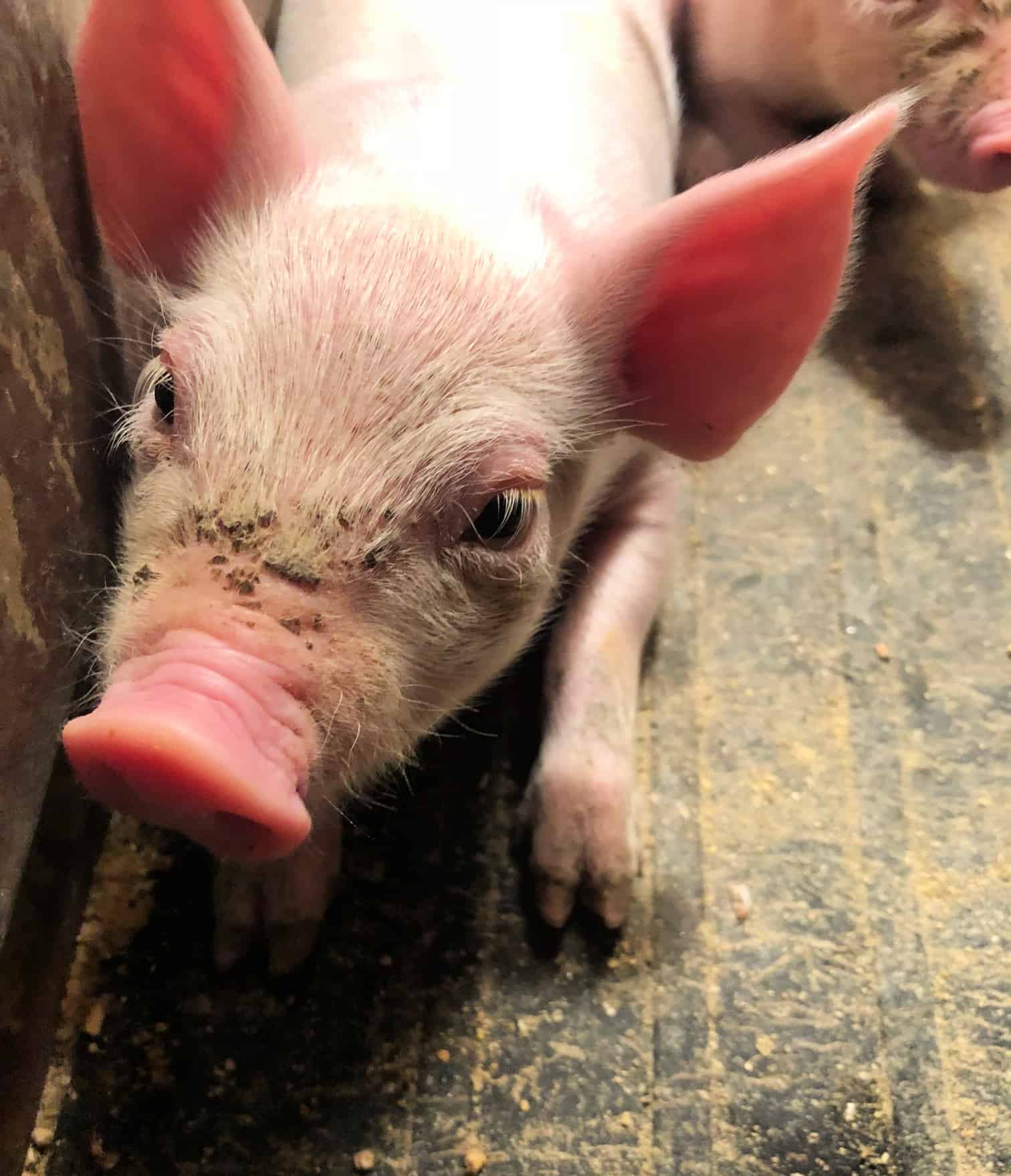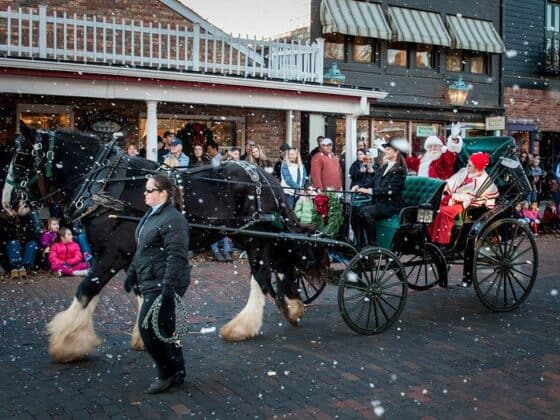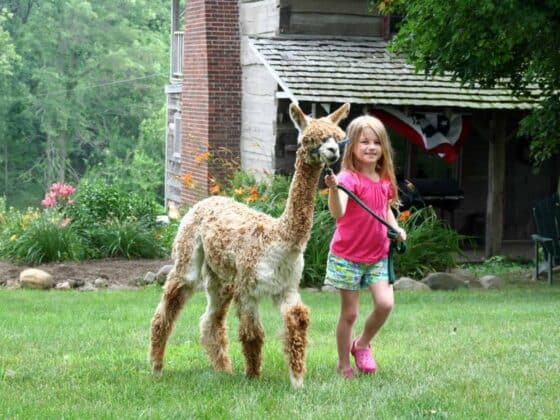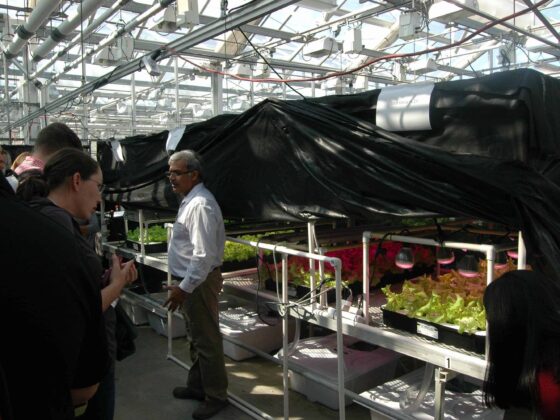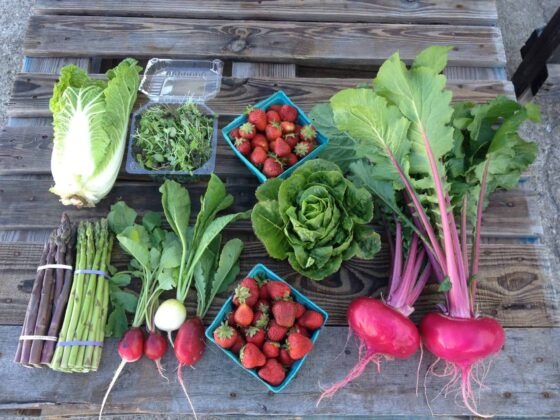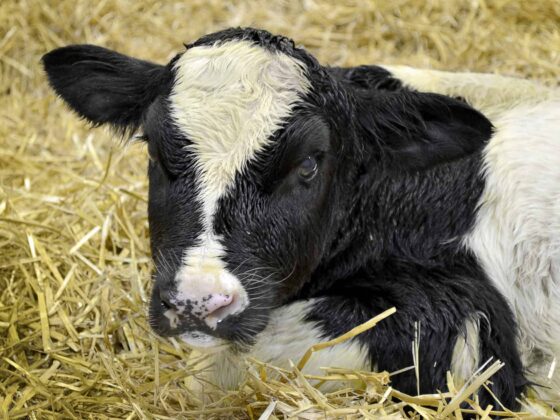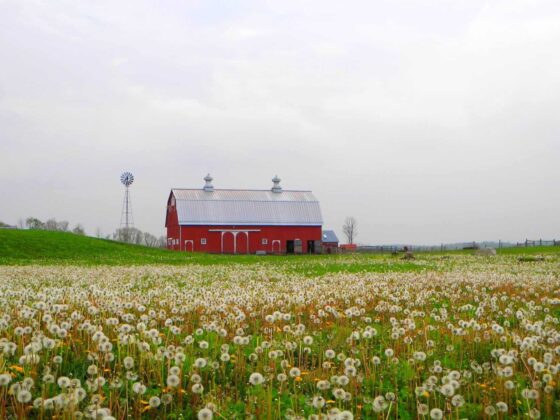Story by Julie Campbell
Indiana pig farmer Heather Hill can’t remember a time when she wasn’t interested in agriculture. In LaPorte County, where she grew up, Heather and her siblings showed livestock in the 4-H program. Heather’s grandfather was also an Indiana pig farmer, and her mother was raised on the farm.
“Our parents instilled the importance of agriculture in us and giving back to our community at an early age,” she recalls.
As she grew older and went off to college at Purdue University, Heather chose animal science as her major. She also met and fell in love with Marc Hill, a farm boy from Greenfield.

“Initially, I thought I wanted to be a large animal veterinarian, but I soon realized that I really wanted to work with the people and the animals on a more daily basis,” she says.
When Marc and Heather married in July of 2000, Heather became an integral part of Hill Farms, a multi-generational farm in Hancock County operated by her family and her in-laws, Steve and Debi Hill. Now Heather and Marc’s three children, Addison, 17, Reese, 13, and Hadley, 10, also help out on the farm when they’re not in school.
“We raise corn, soybeans, wheat and pigs. Marc is the 4th generation of his family to raise pigs in Hancock County, and we are proud to be raising the 5th generation,” says Heather.
Being a woman in the farming business is something else Heather is proud of, but she doesn’t take it lightly.
“I am very lucky to have had several amazing women in my life to help encourage me to follow my dreams and forge my path, and I am blessed to be able to work alongside my mother-in-law,” says Heather. “She is an amazing role model for me and my children. I’m a firm believer that everyone can be whatever they want as long as they work hard and follow their dreams.”

On a typical day, Heather wakes to the sound of her alarm before sunrise. Once she gets her three children off to school, her work on the farm begins. From feeding pigs twice a day and checking conditions in the barns to computer work and record keeping, there’s never a dull moment on the farm.
“Each day is very different, and very different for Marc, Steve, Debi and myself as we all have different areas that we take care of on the farm,” she says. “Our days also depend on what season we are in on the farm. There is work to be done each and every day with raising pigs; however, spring and fall are definitely much busier with also raising corn, soybeans and wheat.”
Hill Farms is a farrow to finish farm, which means their pigs are born and raised on
the farm until they go to market. Although pigs have a reputation for eating anything you put in front of them, Heather says their digestive systems are actually very different from that of a cow or horse. They need a diet comprised of corn and soybean meal and other essential nutrients and vitamins.

“All the corn we raise on our family farm is used to feed our pigs. We sell our soybeans to a local soybean processing plant and turn around and buy soybean meal from them,” Heather explains. “We have our own feed meal on our family farm, so we store the corn and soybean meal in bins on our farm to make feed for our pigs when they need it.”
According to Jeanette Merritt, director of checkoff programs at Indiana Pork, there are nearly 3,000 pig farmers like the Hills in the state of Indiana, farming a total of around 4.1 million pigs. Indiana is the fifth leading state in pork production in the country. October is National Pork Month, making it the perfect time to celebrate our state’s thriving pork industry.
“Pig farmers feed people,” says Merritt. “We provide nearly 15,000 jobs in Indiana. Farms contribute to the local tax base, and farmers donate to their local food pantries to help feed their communities.” And it’s Indiana Pork’s job to support farmers like Heather Hill and promote pork products to consumers.

If buying local is important to Indiana consumers, they’re almost guaranteed that their pork is coming from Indiana farms. There are two processing plants in our state and another two just across the state line in Michigan and Kentucky.
“Pig farming is so important to Indiana and the country,” says Heather. “I know everyone has a different definition of local, but being able to buy pork from Indiana pig farms in Indiana grocery stores is pretty local to me…. In addition to providing pork, our family puts the majority of the money we make on our farm right back into our own community
and state. The impact of agriculture on local communities cannot be forgotten.”


